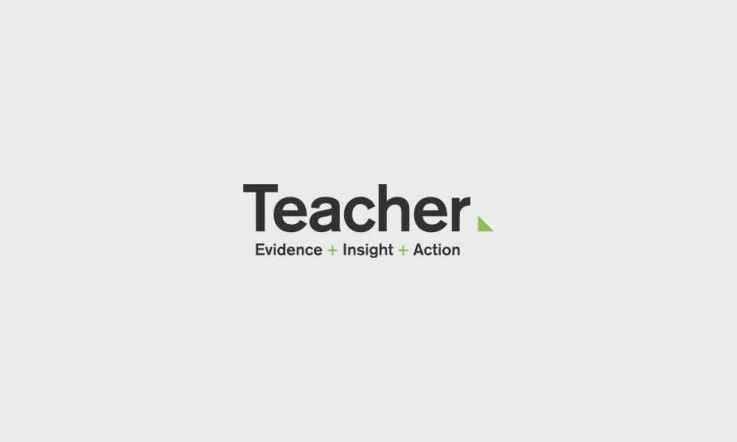Hello, thank you for downloading this podcast from Teacher magazine – I'm Jo Earp.
School leadership is an increasingly complex role and research suggests the demands certainly take their toll on the health and wellbeing of principals, assistant principals and deputy principals. Since 2011, academics here have been analysing and tracking that impact through the Principal Health & Wellbeing Survey. The 2017 survey was carried out by a team from the Australian Catholic University, and Chief Investigator Associate Professor Philip Riley joins me now to discuss the findings.
Jo Earp: Philip Riley, welcome to The Research Files. You're the Chief Investigator of this survey – and also the equivalent surveys which run in Ireland and New Zealand. Today we're focusing on the 2017 Australian results, which have just been released. As I mentioned in the intro there, this survey has been an annual fixture hasn't it, nationally, since 2011. What's the aim first of all?
Philip Riley: Well the aim is really to monitor the health and wellbeing of Australian school principals. I started the survey, beginning in 2010 with a grant from Monash [University], to look at this because we realised that principals were suffering quite a lot in terms of their health, but nobody was tracking the state of play. So, we started by doing very detailed analysis of what had been done previously, and then began the survey really to just get baseline data and then track over time what was going on with Australia's principals.
JE: Who was involved in the latest version, that's 2017, you've just published those results and what exactly did you do?
PR: The latest survey, we've had just under 3000 principals, and deputies and assistants, do the survey this year. Most of those people had done it in previous years, so we have very high return rate when people get their individual results – which is one of the key aspects of the survey process, they get very detailed personal results, which brings them back. We lose a number every year because of retirements, it's obviously a job that you get usually towards the end of a career. The people involved this year have been from all sectors, all states and territories. We've got a very representative sample – when you look at the percentages that we get versus the percentages across the whole country, it's almost a perfect sample.
JE: And, what kind of things will it cover. I mean, health and wellbeing covers a lot of different things, so what kind of areas?
PR: We actually look at a number of aspects of workplace functioning I guess. The major part of the survey is called the Copenhagen Psychosocial Questionnaire, which is considered a gold standard occupational health and safety instrument. It's very long, it takes about 40 minutes for them to do that, and that covers all of the seven major theories of occupational functioning. We've got items from each of those theories, but they kind of coalesce around this theoretical model called the ‘job demands-resources model'. So, we're mapping the demands, we're mapping the resources and then the interplay between those two things, on a yearly basis.
JE: So, that's given you obviously some very detailed results then, so let's move onto those results – can you take us through some of the key findings for this year?
PR: Yes, well the key findings this year are the continuation of this work intensification that's been going on ever since we began, and that was one of the key reasons why we started the research in the first place, that the job seemed to be getting harder and harder to perform. And nothing has changed with that.
So, work hours are gradually creeping up – the average hours at work – and it's way, way over what would be considered healthy. In 1948, I think it was, the ILO [International Labour Organization] set the absolute maximum work hours per week for anybody in any profession at 48 hours a week. Well, the average now for principals is about 60 hours a week. And, there's new evidence coming out from ANU [Australian National University] particularly, but also the American Government did some big research on work hours and health and related things. The ANU study, which is the most terrifying one, is that beyond 32 hours a week for women and about 39 hours a week for men you start to see declines in health – particularly mental health. So, we're talking about the average principal doing about 25 hours a week more than that. They're almost doing two full-time jobs.
JE: And that's the average, so presumably some people are doing way over that.
PR: Yeah, we always have a percentage of probably somewhere between five and about 11 per cent of people doing close to 70 hours a week or above. That's 10 hours a day, every day, no breaks.
JE: So, that's one of the things, the work hours. What else is coming through this year?
PR: Well, the other thing is those work hours are increasing because of the work intensification. There is now way more accountability associated with the job than there ever had been before, and a lot of that work is technical in nature, but also sort of ‘low level'. It's nothing to do with being a principal in particularly and probably could be more efficiently done by people in central offices in departments of education, but it's being pushed out to principals to do it under the guise of autonomy. Now, autonomy is a good thing in terms of workplace occupational health and safety, but not if it doesn't have the requisite resources, and that's what we're not seeing. We're seeing the accountability ramping up, the administrative work ramping up, but not the adequate resources to match those demands.
JE: One of the things that I was reading, in terms of just personal safety, that again it seems to be skewed I suppose, a much riskier profession if you like than some of the others?
PR: That's true, and that was one of the things that shocked me when we first analysed the results is that the levels of violence that principals are experiencing was seven times the rate of the population in 2011, it's now nine times. So, we've had two orders of magnitude increase in just seven years – now, that's pretty frightening. But, I think that's a much bigger problem than just education because there is also evidence that it is increasing in other frontline services, like hospitals, police, ambulance, social workers are all experiencing increased levels of offensive behaviour from the general public. I think this needs to be attacked at a whole of government level and it's got to be bigger than schools, although schools are clearly suffering and principals are suffering in particular with this.
JE: What about the response from principals? I know one of the things that certainly you've asked in previous years is whether they enjoy the job, whether they get job satisfaction. That always seems to come through as fairly high actually doesn't it?
PR: Yes, and this year same as every other year – very high levels of satisfaction. That's one of the things that's interesting about the theory of this; that job satisfaction and job demands usually go in opposite directions, but we've got both going up at the same time. So, people are realising what an important job it is and they get a lot of satisfaction out of that, which is great. That's also in the literature, that's considered a really good resource to keep you going in the job and keep you healthy. But, clearly, despite all that, their levels of burnout, sleeping problems, all those sorts of negative impacts, are still very high. So, it's good news and bad news.
JE: You mentioned that [the survey] covers every state and territory, and sector. Is it a much of a muchness, is it widespread? With these issues, there's not one particular sector or area?
PR: No. I guess the thing that happens is, for instance, if you take the violence [and offensive behaviour], across all three sectors its very similar in the early primary years. But then both the Catholic system and the independent system have the ability to expel or, you know, get rid of difficult families, difficult children, who will eventually end up in the government system. So, towards the end of secondary school it's skewed towards more offensive behaviour in government schools – but it starts off the same everywhere. Which, I think, to me, shows that it is definitely a whole of society problem that needs to be addressed at a whole of society level.
JE: So, let's talk about that just for a moment then. What does that mean on a very practical level? Also, in the report, you talk about at a systems level, some of those nations that are having success in these areas.
PR: Well, the nation that seems to be doing the best in these sorts of things was, up until recently, Finland. And, I've just been contacted by the Finnish Principals Association who want me to do the same research with them, as we're doing in Australia, Ireland and New Zealand, because they say their principals are suffering as much as everybody else. So, I'm not sure. We'll have the do the investigation to see how things really are over there – but they were championed as the leaders in all sorts of areas and it would be very interesting to do that research and see if we can find similar things.
Which is interesting because, in terms of Ireland and New Zealand and Australia the results look almost identical. The only major difference between the three countries is Ireland has a much lower level of violence – two orders of magnitude versus nine; that's a very big difference. They report higher levels of bullying, but way lower levels of violence. And that's really the only thing, everything else I could have just about have cut and pasted results from one country to the next and they'd still be accurate.
JE: For people listening today then, that are in those roles (or educators looking to go into those roles), what does the research mean for them – are there practical things they can do at an individual level?
PR: Just if we back up a bit, I think that that is already being borne out – there's a huge decline in real application rates for the principalship. At a time when we have probably 80 per cent of principals within four of five years of retirement age we've also got an 80 per cent decline in applications to replace them. Now, in Portugal they had the same problem – they were also suffering financially, because of a whole lot of things. So they made an executive decision that anybody appointed as a principal now has five schools, and they wiped out the problem (on paper). But you can see that there's a huge issue, potentially, arising there. So, the schools are going to become self-governing collectives, I think, because the principals won't be there very often.
Now, we may have the same kind of issues coming up here. It may look very attractive to governments to say we can pay a lot less if we give five schools to each person silly enough to put their hand up to say I'll be a principal at that situation.
JE: Okay. At an individual level, is there something that educators can be doing …?
PR: Things are happening, I'm starting to become very positive about governmental responses ... Initially, governments weren't really interested in the results and now they are wanting serious briefings with reasonable chunks of time given to me to brief their senior executives and things. So, I think there is an attitudinal change that's come about probably as a result of the findings being published every year that is, I think, very positive.
New South Wales last year spent $50 million to give principals administrative support. The Victorian Government is about to spend $4 million on health checks for, at least state government, principals. So, these things are kind of all starting to emerge. It's too early for us to see changes in the results yet because most of these things happened towards the end of last year and we'd already collected the data last year in the third term. But it will be very interesting this year to see if there's a change, because there is some support starting to emerge.
So, I think the future looks promising, but there's a long way to go, clearly. The thing about high levels of job satisfaction is, despite all of these things, principals are still saying it's an important job and they really like doing it and making a difference in kids' lives, and that's the thing that keeps them going. So if we can change the working conditions a bit it could become a very attractive job again very quickly, and we'll start getting real momentum around this.
JE: And as you said, reduce those hours as a starting point.
PR: Yes, that could easily be done, and that really comes down to departments of education looking at the demands they're putting on principals and whether they could change their own internal processes, more efficiently, which I'm sure they can, given the sorts of work that I've seen landing on principals' desks.
JE: Finally then, what are the next steps in terms of further analysis of this or future research? You mentioned it's ongoing.
PR: We have now a big team of people looking at the data and a couple of PhD students who have just come on board this year to analyse the data in far greater depth. We have this wealth of data now and it's time to do some serious analysis – and that's all beginning in the background.
We're also looking at expanding to other countries. As I said, Finland are interesting in replicating this setting. We've also teamed up with the International Confederation of Principals, and they are keen to expand this research on a global level (they've got 40-something member countries). So there's a lot of work, potentially, ahead to do some comparisons with countries that are doing better, not so well, and trying to unpack what the drivers of those things are.
JE: You mentioned you're off to New Zealand shortly and you'll be releasing those latest results there. We'll put links to all of those other reports online. We wish you well with your future research, but for now, Associate Professor Philip Riley, thank you very much for sharing your work with The Research Files.
PR: Thank you for inviting me.
That's all for this episode - to keep listening or to download all of our podcasts for free, whether it's more on The Research Files or our series on Behaviour Management, School Improvement, Teaching Methods, Global Education or Action Research, just visit acer.ac/teacheritunes or soundcloud.com/teacher-ACER. The full transcript of this podcast and further information about the Principal Health & Wellbeing survey discussed in this episode is at teachermagazine.com.au. That's where you'll also find the latest articles, videos and infographics for free.
References
Riley, P. (2018). The Australian Principal Occupational Health, Safety and Wellbeing Survey: 2017 Data.
Does your school have policies in place to deal with offensive behaviour towards staff?
As an educator, do you regularly set time aside to focus on your own health and wellbeing? How could you incorporate this into your daily or weekly routine?



